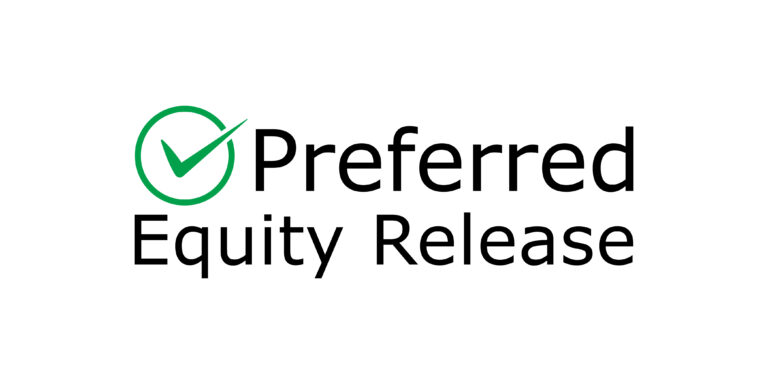In today’s economic landscape, many retirees find themselves seeking avenues to supplement their income and secure their financial future. Equity release has emerged as a popular solution, offering homeowners aged 55 and over the opportunity to access the wealth tied up in their homes. However, before diving into the world of equity release, it’s essential to understand both its benefits and drawbacks. This comprehensive guide will explore the pros and cons of equity release, empowering you to make an informed decision about whether it’s the right financial move for you.
Pros of Equity Release
- Access to Funds: Equity release provides homeowners with a means to access a lump sum or regular income, offering much-needed financial flexibility in retirement. This can be particularly beneficial for covering essential expenses, funding home improvements, or fulfilling lifelong dreams such as travel or supporting family members financially.
- No Need to Downsize: Unlike traditional methods of unlocking home equity, such as downsizing to a smaller property, equity release allows homeowners to remain in their homes while still accessing the value tied up in their property. This means they can maintain their familiar surroundings and cherished memories without the upheaval of moving.
- Tax-Free: The funds released through equity release are typically tax-free, making it a tax-efficient way to supplement retirement income. This can be especially advantageous for retirees looking to maximize their spending power and minimize their tax liabilities.
- No Monthly Repayments: With equity release products like lifetime mortgages, borrowers are not required to make monthly repayments. Instead, the loan and accrued interest are typically repaid when the property is sold, either upon the homeowner’s death or when they move into long-term care. This can provide peace of mind for retirees on fixed incomes.
- Security of Tenure: Equity release products often come with a guarantee of lifetime occupancy, ensuring that homeowners can remain in their homes for as long as they wish without the fear of being forced to move out. This can provide valuable stability and security in later life.
- Flexibility in Use of Funds: Equity release funds can be used for a variety of purposes, including home improvements, debt consolidation, supplementing retirement income, or providing financial assistance to family members. This flexibility allows retirees to tailor their financial strategy to meet their specific needs and priorities.
- Protection Against Negative Equity: Many equity release products offer a “no negative equity guarantee,” which means that homeowners or their beneficiaries will never owe more than the value of the property, even if property prices fall. This can provide reassurance that their estate will be protected from the impact of a downturn in the property market.
Cons of Equity Release
- Accrued Interest: One of the significant drawbacks of equity release is the compounding interest that accrues over time. With products like lifetime mortgages, the interest is typically rolled up and added to the loan balance, potentially eroding the value of your estate over time. This can reduce the amount of inheritance left to beneficiaries.
- Impact on Inheritance: Releasing equity from your home can significantly reduce the value of your estate, potentially impacting the inheritance you leave behind for your loved ones. This is particularly relevant for homeowners who wish to pass on their property or other assets to their heirs. It’s essential to consider the impact on your beneficiaries and have open discussions with them about your intentions.
- Complexity and Costs: Equity release transactions involve legal and administrative complexities, including valuation fees, solicitor fees, and arrangement fees. These costs can vary depending on the provider and the type of equity release product chosen, making it essential to carefully consider the overall cost implications. It’s crucial to obtain clear and transparent information about all fees and charges before proceeding with equity release.
- Impact on Means-Tested Benefits: Releasing equity from your home may affect your eligibility for means-tested benefits, such as pension credit or council tax support. It’s crucial to seek advice from a financial advisor to understand how equity release could impact your entitlements and financial situation. They can help you navigate the complexities of means-tested benefits and explore alternative financial strategies to mitigate any potential impact.
- Limited Market Growth: While the equity release market has grown significantly in recent years, it remains relatively small compared to other financial sectors. This limited market growth can lead to fewer product options and potentially higher costs for consumers. It’s essential to research different providers and products to ensure you find the most suitable option for your needs and circumstances.
- Potential for Negative Equity: While many equity release products offer safeguards against negative equity, there is still a risk that your outstanding loan balance could exceed the value of your property, particularly if property prices decline sharply. This could potentially leave you or your beneficiaries with a shortfall to repay when the property is sold. It’s crucial to carefully consider this risk and seek advice from a financial advisor to assess whether it’s worth the potential downside.
- Loss of Home Ownership: With certain equity release products, such as home reversion plans, homeowners sell part or all of their property to the equity release provider. This means that they no longer fully own their home, which can be a significant emotional and psychological adjustment. It’s essential to carefully weigh the loss of home ownership against the benefits of accessing equity and consider whether it aligns with your long-term goals and priorities.
Conclusion
Equity release can be a valuable financial tool for retirees looking to access the wealth tied up in their homes. However, it’s essential to carefully weigh the pros and cons before making a decision. By understanding the potential benefits and drawbacks of equity release, you can make an informed choice that aligns with your financial goals and aspirations in retirement.
Final Thoughts
As you consider whether equity release is the right option for you, it’s crucial to seek advice from qualified professionals and explore alternative financial solutions. With careful consideration and expert guidance, you can navigate the complexities of equity release and make confident decisions that support your long-term financial wellbeing.




